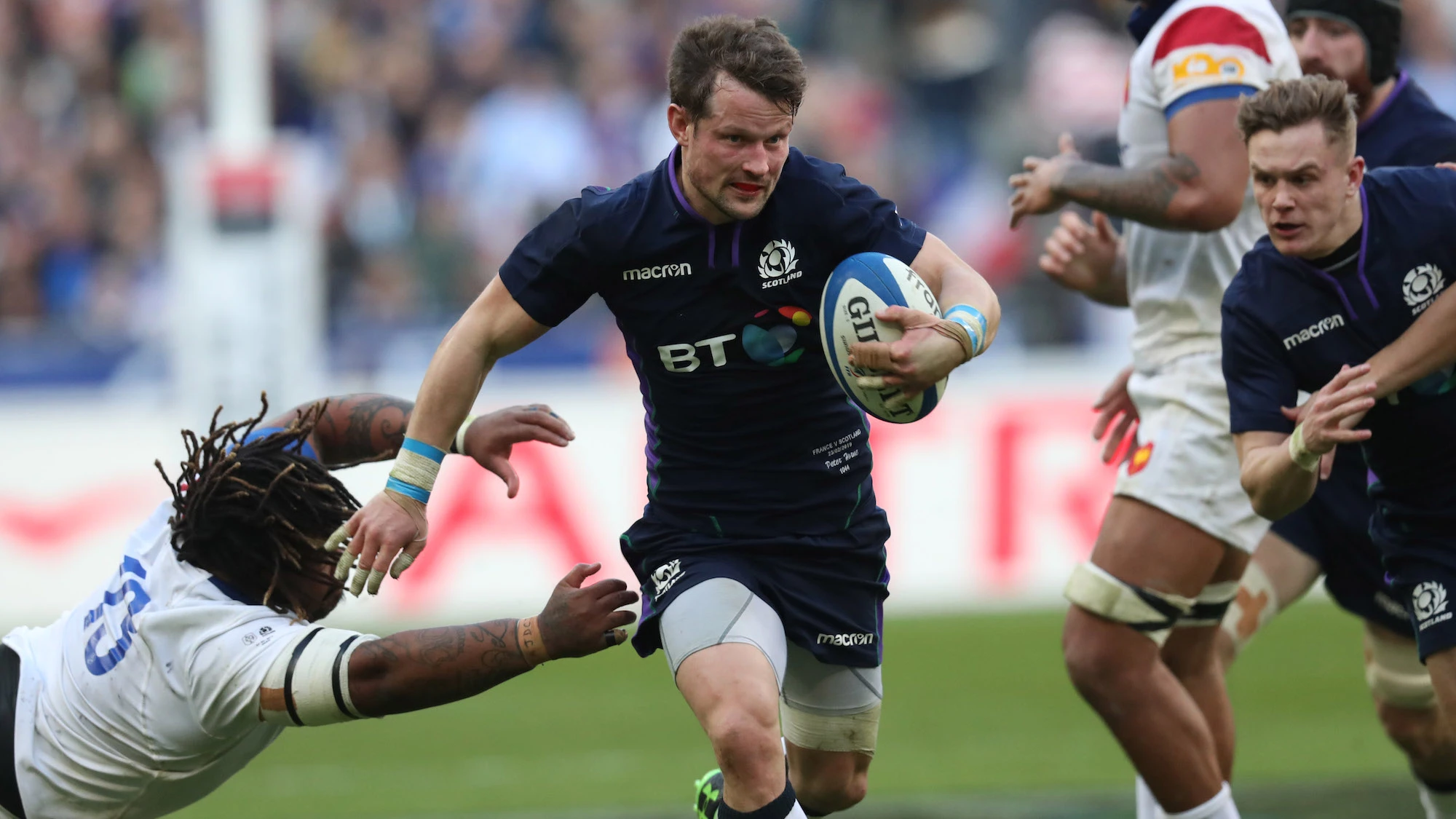Wales came into the 2022 Guinness Six Nations as holders after narrowly missing out on a Grand Slam in 2021.
After victory over Australia in the Autumn Nations Series there was a sense that Wales would once again be difficult to beat this time around.
It must be said though, that this was very much a Wales side in transition, as Wayne Pivac dealt with a number of high-profile absentees, which led to an ultimately frustrating campaign.
TALE OF THE CHAMPIONSHIP
Wales began with the daunting task of visiting Ireland at the Aviva Stadium, a ground they had a formidable record in, winning 20 of the 27 Guinness Six Nations matches held there and the ground in which they beat New Zealand only months before.
It proved to be a very difficult afternoon in Dublin for the away side, as they couldn’t get their game going, eventually finishing on the wrong side of a 29-7 score line, with Taine Basham’s late try a rare positive for Pivac and his men.
Wales then returned to Cardiff to take on Scotland, who were fresh from victory over England the week before.
Scotland did win at the Parc y Scarlets in the 2020 Championship but had not won in Cardiff since 2002.
Wales began in supreme form and quickly started building a lead through Dan Biggar’s boot, but Scotland kept coming back and scored through Darcy Graham, before Tomas Francis bundled over from the back of a driving maul to level the scores at 14-14 at half-time.
An incredible defensive shift in the second half saw them keep Scotland to just three points, and Biggar’s drop goal ten minutes from time was enough to keep the winning streak over Scotland in Cardiff going and lift the Doddie Weir Cup as Wales won 20-17.
The first fallow weekend was to be an enjoyable one after victory, but they faced England next at Twickenham, another ground they had not enjoyed recent success at – last winning in that infamous World Cup game in 2015.
Wales’ first-half struggles continued as they found themselves on the back of a 12-0 deficit at half-time, with Marcus Smith punishing the Welsh ill-discipline from the tee.
England pushed that lead out to 17-0 when Alex Dombrandt scored, but Wales came back into the game in style, with Josh Adams and Nick Tompkins crossing for tries, before Kieran Hardy’s score at the death meant England ran out 23-19 winners.
The next challenge was getting revenge on France, who would later lift the Grand Slam, after Pivac’s men suffered at the hands of a last-gasp Brice Dulin try a year before.
Anthony Jelonch crossed early on for France and the signs were ominous for Wales, but they rallied superbly and pushed the future Champions all the way, eventually finding themselves on the wrong side of a 13-9 score line.
Last up for Wales was Italy, a side who had not won in the Championship since 2015, failing to win in 36 matches.
From minute one however it was a tough ask for the reigning champions, who were hoping to rise up to third with victory, as Italy fronted up on what was supposed to be Biggar and Alun Wyn Jones’ big day, as they earned 100 and 150 caps respectively.
Owen Watkin’s good footwork saw him cross for Wales’ first try of the afternoon, but Italy led 12-7 at half-time.
Dewi Lake’s try shortly after half-time put the home side into the lead, but Paolo Garbisi added another penalty to put Italy back in front again.
Adams found some space out of nowhere and broke through to give Wales a 21-15 advantage, which, heading into the dying seconds appeared to be enough.
But then one of the most iconic moments of the Championship so far occurred, as Italian winger Edoardo Padovani broke Welsh hearts with a last gasp try under the posts as Italy ended their losing streak and Pivac’s men were stunned into a first ever loss to Italy in Cardiff.
That defeat meant Wales finished fifth with just one win in five, after lifting the title a year before, but there will have been many lessons learnt along the way.
STAR PLAYER
In a campaign where few played all five matches, the number of players who can be considered as Wales’ star player are fairly limited.
Josh Adams scored two tries and was Wales’ top try scorer, Taine Basham was excellent in the first three matches and centre Owen Watkin has made the 13 shirt his own this year.
Taulupe Faletau was also outstanding after missing the opening two games of the Championship.
But a player who rarely gets the recognition he deserves is second row Will Rowlands, who has emerged as a bit of a hidden gem this Championship
Rowlands, 30, started in the first four matches and came off the bench against Italy and didn’t put a foot wrong, often being unlucky to come out on the losing side.
STANDOUT MOMENT
Aside from Biggar and Jones’ reception at Principality Stadium before the Italy match, the obvious stand-out moment would be the turnover to seal victory against Scotland.
Stuart Hogg had got onto the outside of the Welsh defence, but a combined counter ruck of Louis Rees-Zammit and Jonathan Davies from Watkin’s tackle sealed victory for Wales and led to the deafening raw at Principality Stadium.
BREAKTHROUGH PLAYER
At just 22, flanker Jac Morgan showed that the future of the Welsh back row is in good hands.
The Ospreys star in the making earned his debut for Wales against Scotland in the victory in Round 2, and although the familiar names of Faletau and Josh Navidi returned to the starting XV, Morgan retained his spot in the Welsh squad for the matches against both England and France.
He may not have had the most successful Championship, but he certainly made his mark and will be someone to look out for in future.
FUTURE HORIZONS
The future for Wales is a little blurry it must be said, after a campaign that has seen them lose four matches and finish fifth 12 months on from lifting the trophy.
But Pivac’s side are in transition, and there will have been a lot of lessons learnt from the campaign which will only help them to return to winning ways next year.
It is also important to note that three of those four losses were decided by four points or fewer, suggesting that Wales are not far off even in transition from being at the right end of the table.
The upcoming summer tour to world champions South Africa will be a big challenge and will really show where Wales are as a side.
They can learn big lessons from South Africa, who 18 months from the 2019 World Cup were themselves struggling to get results, before lifting the William Webb Ellis trophy.
Wales may have finished fifth this year, but there is certainly the talent and desire in that squad to transform into world beaters again in no time.



